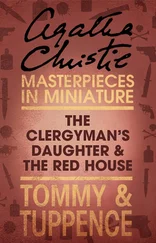He gazed south-west where the vanguard of the buildings gathered for approaching tourists. With the Statue of Liberty on sentry duty. He moved and sighted north towards what he thought was the Bronx, beyond a phalanx of skyscrapers. Difficult to believe that in one section of one storey of one of those obelisks, a business, an existence, a saga, could exist without awareness above or below.
To the north-east the metallic, ostentatious thrust of the Chrysler Building with, he surmised, the pygmy-giant of the United Nations close by; but within that cubist pygmy lay the power to curb so much capitalist expansionism.
The city, so beautifully exhibitionist, within the ice-blue perimeters of its rivers.
‘Sometimes snow and rain can be seen falling up.’
‘I know,’ Vladimir Zhukov said. ‘And the rain is sometimes red.’
He turned without surprise and faced Mikhail Brodsky.
The breakfast was called The Heavyweight. It consisted of a wafer of bacon, two rheumy fried eggs and three pancakes covered with maple syrup and crowned with a dollop of whipped cream. For your $1.25 you also got a small glass of orange juice, toast and coffee. It was, Zhukov thought, good value and totally disgusting He ate it with relish.
Brodsky ordered coffee, tapping the last grains of sugar from the paper sachet with his forefinger, leaking the last drop of cream from the tiny carton, his actions the legacy of a needy youth. Although the delicate bloom on his cheeks seemed to have surmounted bread and potatoes and blinis.
Brodsky tuned in with two bars and said, ‘I think this is more our style.’
More than what?
Brodsky cat-sipped at his coffee. ‘I feel at home in these places. With these people.’ He indicated the coffee shop’s occupants: a gaunt, white-haired man in a Stetson flirting grotesquely with the woman behind the counter; a starved little guy in a red checked lumber jacket continuing his life’s search for winners with a chewed fingernail; a bearded Negro in a cowboy jacket riding his chair like a horse; mother and son spooning banana splits, a salesman inside an overcoat collapsed by rain and snow.
The statement seemed to Zhukov to be an admission of inferiority. But he let it pass. ‘How did you find me up there?’ Either the room had been bugged or Valentina had told him or he’d been followed. Any one explanation wearied him.
‘It was not so remarkable. Your wife was still feeling tired and suggested that I meet you instead.’ He wiped his glasses, looking myopic and vulnerable. ‘And it’s good that we become friends because we shall be seeing a lot of each other in Washington. I think we should have a chat now before we leave. You see,’ he explained, ‘the weather has cleared and we shall be taking the shuttle this afternoon.’
‘So soon?’
‘Washington is your destination.’ He glanced around the café with a furtiveness as natural as sleeping and breathing.
‘So we are going to have a frank and open talk, are we?’
‘I hope so, comrade. I really hope so.’ The girlish hair fell about.
He pressed his loaded sinus with finger and thumb; nails pared and clean, hands hairless. His lashes brushed the lenses of his spectacles. He wore the same dark overcoat, the same woolly scarf that mothers made you wear, a thin grey tie.
‘Then tell me what happened at the Embassy this morning.’
‘It was all most unfortunate.’
‘I could see that. It is never fortunate for a man when he is kicked in the crotch and rabbit-punched. But why, Brodsky? Why?’
‘He was a very foolish boy.’
‘What happened?’
‘You need not concern yourself. It was a small irritating incident and you have the great task of adapting yourself to life in this self-indulgent society in which we find ourselves. It was the foolishness of youth. A girl, too much whisky—watch the whisky, comrade. He will wake up in Moscow and be dealt with there. A small punishment, probably, plus the knowledge that he has ruined his career.’
‘I think he tried to defect.’
Brodsky sighed, holding up one delicate hand as the woman came to clear the table.
‘More coffee?’ she asked.
‘Please,’ they said.
‘Coming up.’
She was blonde and Germanic and smiling, but she moved like an automaton, like the girl who sold him the newspapers. A symptom of being a menial in an affluent society, Zhukov supposed. She brought more coffee and they thanked her and she said, ‘You’re welcome.’
‘Did he try to defect?’ Zhukov asked.
‘That is a very dramatic and contemporary word. He simply decided that he would like to stay with this American girl.’ Brodsky reached for his inhaler. ‘I suppose you might as well know the full story.’ (Which meant he would be lucky to hear a half-truth.) ‘He arranged to meet an American in a café in Queens. She was going to help him disappear for a while. But we were waiting for the unfortunate Boris Ivanov in the café.’
‘You mean you made some sort of deal with the Americans?’
Brodsky shrugged delicately. ‘It really isn’t my business. I can only tell you what I have heard. He was only a boy after all. I suppose he had nothing much to offer the Americans …’ He put away the plastic white bullet. ‘Not like you, comrade. If you were ever in a position to take such foolish action.’
The song had left his lips. Replaced by the voice of secret authority that served Czars and other dictators and the Party with unswerving treachery; the voice of those who chose murder and intrigue as others choose dairy farming or quantity surveying.
And here was the voice in a coffee shop on 42nd Street, New York City. Zhukov’s reactions chilled: Grigorenko was the underline, Mikhail Brodsky the boss. Perhaps the boss, with an Ambassador, a Minister Counsellor, counsellors, secretaries, attachés under him.
‘If you think I am the sort of person who would take such an action then I should never have been sent here,’ Zhukov said.
‘I didn’t make the choice.’ Brodsky lit a mentholated American cigarette. ‘But it was very foolish of you to go wandering around in New York on your first day here.’
‘Apparently I was not alone.’
‘You could have been mugged.’
‘Mugged?’
‘Robbed, beaten up. I don’t know how the word came to be. Perhaps because only mugs allow themselves to be robbed.’
‘In broad daylight?’
‘Certainly in broad daylight. This is a dangerous and decadent society, comrade. A man will knife you in a cinema queue for the money to buy drugs.’ He leaned forward, blinking behind his gold-rimmed spectacles. ‘Like myself you are a sensitive man. You write poetry, I believe?’
‘How did you know that? It’s never been published.’
Brodsky slipped the question. ‘I too write poetry. Some of it has been published in Novy Mir. And once I wrote an amusing little poem about Russian women wearing shorts. Calling them shortiki —an American-derived term—instead of trusiki. It was quite well received.’
‘I’m happy for you,’ Zhukov said.
‘I’m trying to illustrate that people like ourselves should be both sensitive and realistic. It’s not wise to let sensitivity get the upper hand in this country. Values can become unbalanced in a sensitive mind. You can be dazzled by the abundance of food and drink and clothes and apparent freedom and forget the misery and oppression and violence.’
‘Thanks for the warning,’ Zhukov said. ‘I had many like it before I left Moscow.’
‘Nevertheless these first impressions can be quite traumatic.’ He sang a couple of bars and relaxed. ‘Now it seems to me that we should go.’
The woman behind the bar called out, ‘Goodbye, folks. Have a good day.’ And confided to her senile suitor in the Stetson, “English tourists—I can always tell ’em.’
Читать дальше












